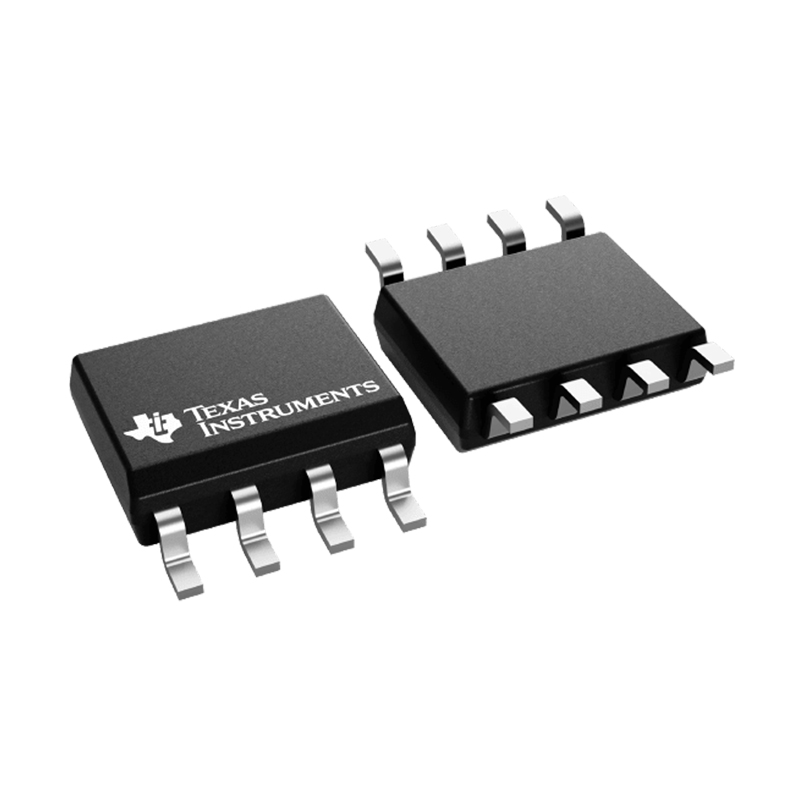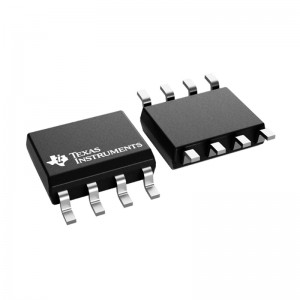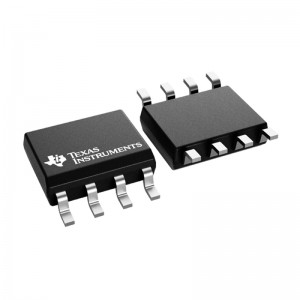
Products
TCAN1051HVDR
Features for the TCAN1051HV
Meets the ISO 11898-2:2016 and ISO 11898-5:2007 physical layer standards
Documentation available to aid functional safety system design
’Turbo’ CAN:I/O Voltage range supports 3.3 V and 5 V MCUs
All devices support classic CAN and 2 Mbps CAN FD (flexible data rate) and "G" options support 5 Mbps
Short and symmetrical propagation delay times and fast loop times for enhanced timing margin
Higher data rates in loaded CAN networks
Ideal passive behavior when unpowered
Bus and logic terminals are high impedance (no load)
Power up/down with glitch free operation on bus and RXD output
Protection featuresReceiver common mode input voltage: ±30 V
HBM ESD protection: ±16 kV
IEC ESD protection up to ±15 kV
Bus Fault protection: ±58 V (non-H variants) and ±70 V (H variants)
Undervoltage protection on VCC and VIO (V variants only) supply terminals
Driver dominant time out (TXD DTO) - Data rates down to 10 kbps
Thermal shutdown protection (TSD)
Typical loop delay: 110 ns
Junction temperatures from –55°C to 150°C
Available in SOIC(8) package and leadless VSON(8) Package (3.0 mm x 3.0 mm) with improved automated optical inspection (AOI)capability
Description for the TCAN1051HV
This CAN transceiver family meets the ISO11898-2 (2016) High Speed CAN (Controller Area Network) physical layer standard. All devices are designed for use in CAN FD networks up to 2 Mbps (megabits per second). Devices with part numbers that include the "G" suffix are designed for data rates up to 5 Mbps, and versions with the "V" have a secondary power supply input for I/O level shifting the input pin thresholds and RXD output level. This family of devices comes with silent mode which is also commonly referred to as listen-only mode. Additionally, all devices include many protection features to enhance device and network robustness.
1. Who are the staff in your R & D department? What are your qualifications?
-R & D Director: formulate the company’s long-term R & D plan and grasp the direction of research and development; Guide and supervise r&d department to implement company r&d strategy and annual R&D plan; Control the progress of product development and adjust the plan; Set up excellent product research and development team, audit and training related technical personnel.
R & D Manager: make new product R & D plan and demonstrate the feasibility of the plan; Supervise and manage the progress and quality of r&d work; Research new product development and propose effective solutions according to customer requirements in different fields
R&d staff: collect and sort out key data; Computer programming; Conducting experiments, tests and analyses; Prepare materials and equipment for experiments, tests and analyses; Record measurement data, make calculations and prepare charts; Conduct statistical surveys
2. What is your product research and development idea?
- Product conception and selection product concept and evaluation product definition and project plan design and development product testing and validation launch to market





